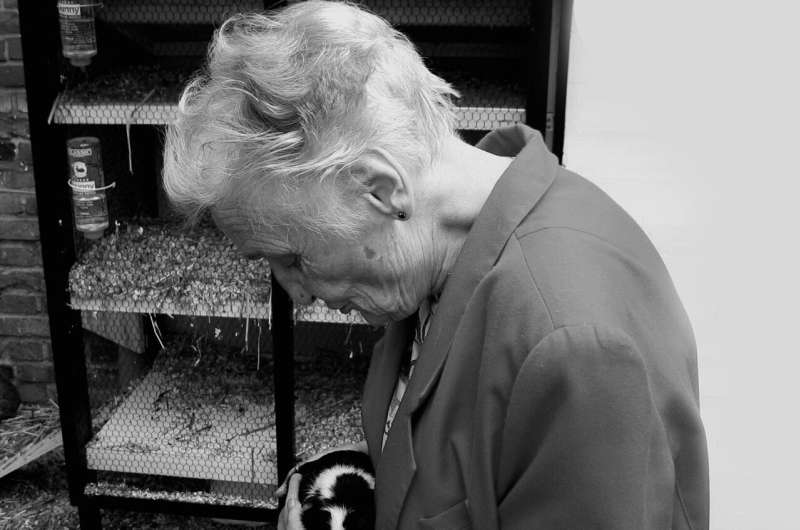Mindset4Dementia app uses AI for next generation screening tool

A team of students and doctors, led by UCL medic Hamzah Selim, has launched an innovative app which uses fun brain games to screen people for signs of dementia.
The Mindset4Dementia app, made available on the App Store this month, asks users a series of questions around age, health and lifestyle, before getting them to complete a series of playful cognitive exercises.
The games harness NHS guidelines and mirror the dementia screening process, looking at short and long-term memory, concentration and attention span, language and communication skills and awareness of time and place (orientation).
Mindset4Dementia screens for neurological anomalies and uses artificial intelligence (AI) to accurately flag clinically relevant findings. At the moment users are not diagnosed but the data collected, combined with the AI capability, is enabling the researchers to evolve the app into a next generation dementia screening tool, which could be used to diagnose patients in their own home.
Hamzah Selim, a 4th year UCL medical student, conceived the idea for a dementia screening app in 2018 and has since built a multi-disciplinary team of students and scientists, with expertise in coding, clinical medicine and neuroscience.
After two years' development, and with support from UCL, UCL Innovation and Enterprise and Imperial College London, the Mindset4Dementia app has now been made freely available. After just a few days it ranked as the 5th most popular medical app on the App Store.
Hamzah said: "Compassion is built throughout the app; it is designed be pleasurable to use with relaxing colour schemes, easy to use buttons, jokes and emojis – putting patients at ease - just as a doctor would.
"However, we have ensured the data we are gathering is scientifically robust. Each person who uses the Mindset4Dementia app is generating lots of exciting clinical data, which can then teach an AI how the brain works, making it better at noticing when something isn't quite right.
"For example, a common sign of dementia is a lack of vertical eye movement, which is practically assessed by having the patient follow a doctor's finger.
"Mindset4Dementia animates an object for the patient to track and leverages Apple's ARKit technology to quantify the user's eye movement, mimicking a robust clinical analysis. By directly assessing a range of symptoms, our technology goes beyond competitor solutions who rely on self-reported symptoms."
Approximately 209,600 people will develop dementia this year, which equates to one every three minutes. There are currently around 850,000 people with dementia in the UK and this figure is projected to rise to 1.6 million by 2040.
However, dementia is hard to detect with 62% of those living with the condition existing undiagnosed. COVID-19 has exacerbated the issue of dementia going undetected or sufferers not receiving the clinical care and support they need.
Hamzah added: "At UCL we learn about patient-teaching, which highlights the importance of being highly transparent and having clear communication with patients.
"I took what I'd learnt about explaining procedures to patients, and integrated them into Mindset4Dementia ensuring the information was easy to understand and clearly laid out. Taking time to develop the app and being guided by patient-teaching has been critical for its success."
Snapchat inspiration
The concept of Mindset4Dementia came to Hamzah whilst sending a Snapchat. He was learning about eye-movements during his neuroscience research year and the diagnostics behind when a doctor says, "follow my finger with your eye". He realised whilst moving the dog filter around that while Snapchat could leverage technology to track eye-movements, healthcare didn't yet have that ability. Establishing that existing technology could be applied to healthcare to make care more accessible and accurate, he embarked on a BSc to try to put neurological care in the palm of everyone's hand.
Data collection aiding research
Built on a simple 1, 2, 3 principle of Analyse, Build and Care, the Mindset4Dementia user is contributing vital data on how a healthy brain should look. This teaches the app's AI to differentiate between healthy and abnormal presentations and Mindset4Dementia can then be used to screen and help millions of undiagnosed individuals. The data collected will look at trends and collect epidemiological information. The ambition is to then pass this information on to other healthcare institutions to improve dementia research as well as have the app fully incorporated into the NHS.
More information: Mindset4Dementia: www.mindset4dementia.com/



















